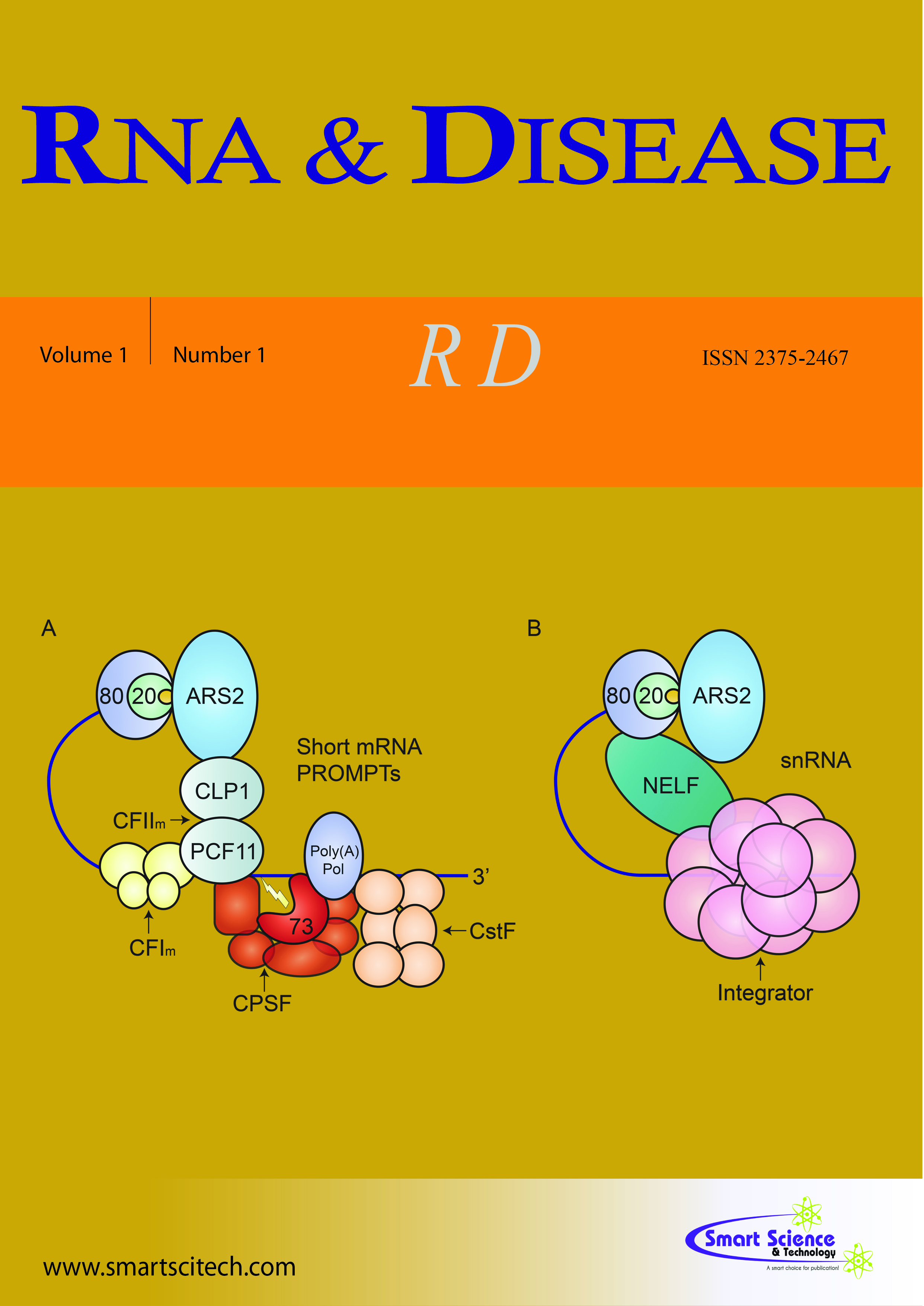Cholesterol-conjugated let-7a miRNA mimics: promising tools for HCC systemic
DOI: 10.14800/rd.630
Abstract
Let-7 microRNA (miRNA) family members have been demonstrated to have potential therapeutic value in vitro and in vivo as tumor suppressors that act by regulating Ras at a posttranscriptional level. Previous studies on these miRNAs have primarily focused on certain cancers in which mutation and abnormal activation of k-ras/K-Ras occur, such as lung cancer and pancreatic cancers. However, the antitumor potential of let-7 in the case of hepatocellular carcinoma (HCC) has remained untested. Moreover, a major hurdle that limits the clinical use of miRNAs through systemic delivery, including the delivery of let-7 for HCC therapy, is the lack of an effective carrier for targeting tumors. Recently, we confirmed the antitumor efficacy of cholesterol-conjugated let-7a mimics (Chol-let-7a) in vitro and in vivo and verified—for the first time—that Chol-let-7a can effectively carry let-7a to orthotopic tumors in the liver and successfully inhibit tumor growth in a preclinical model when delivered systemically. We also evaluated for the first time the potential off-target effects of Chol-let-7a in liver and kidney after long-term systemically delivery, in which Chol-let-7a mainly reached and remained at these organs. Lastly, we showed that Chol-let-7a downregulated all 3 human ras/Ras at transcriptional and translational levels and primarily functioned in the cytoplasm. Overall, our data suggest that the use of cholesterol-conjugated miRNAs is a promising tool for HCC systemic therapy.












